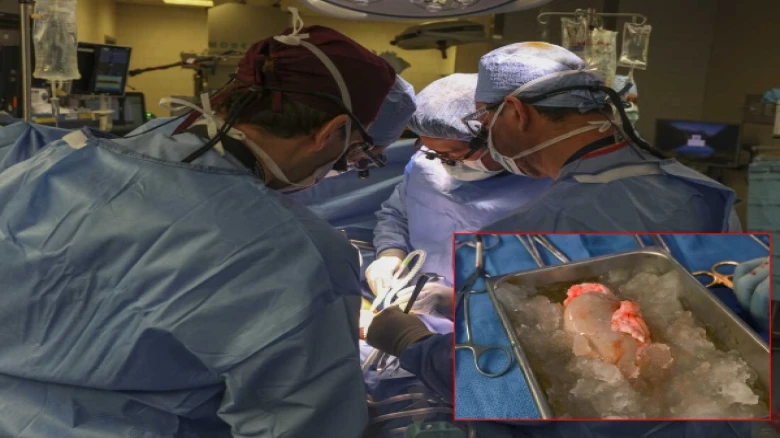The team anticipates the pig kidney to function effectively for at least two years...
Digital Desk: In a groundbreaking medical advancement, doctors in the United States have successfully transplanted a genetically modified pig kidney into a 62-year-old patient. This pioneering procedure, conducted by the team at Boston’s Massachusetts General Hospital, marks a significant milestone in the realm of xenotransplantation—the use of animal organs in humans.
Richard “Rick” Slayman, hailing from Weymouth, Massachusetts, underwent the historic surgery last Saturday and is reported to be recovering well. Dr. Tatsuo Kawai, the lead transplant surgeon, expressed optimism about Slayman's recovery, stating that he is expected to be discharged soon. The team anticipates the pig kidney to function effectively for at least two years, providing Slayman with an alternative to dialysis.
Unlike previous attempts with pig organs, which resulted in the recipients' deaths within months, Slayman’s case presents a promising outlook. Dr. Winfred Williams, a kidney specialist, noted that Slayman is in robust health compared to previous recipients of pig organs.
Slayman’s journey to this groundbreaking procedure began when complications arose following a kidney transplant in 2018, necessitating a return to dialysis. Facing the prospect of frequent dialysis procedures, Slayman and his medical team explored the possibility of a pig kidney transplant. Slayman saw this not only as a personal lifeline but also as a beacon of hope for the thousands awaiting organ transplants.
The surgical feat, which lasted four hours and involved a team of 15 medical professionals, was met with applause when the transplanted kidney began functioning. Dr. Parsia Vagefi, chief of surgical transplantation at UT Southwestern Medical Center, hailed the achievement as a significant step forward in the field of xenotransplantation. However, he emphasized the need for further studies involving more patients across different medical centers to establish the procedure's efficacy and safety.
This milestone underscores the evolving landscape of xenotransplantation, which has long been hindered by immune rejection of foreign animal tissue. Recent advancements, such as the genetic modification of pigs to render their organs more compatible with humans, offer hope for addressing the chronic shortage of donated organs.
The significance of this breakthrough cannot be overstated, given the staggering number of individuals awaiting organ transplants. With over 100,000 people on the national transplant waiting list, predominantly kidney patients, and thousands succumbing to organ failure each year, innovative solutions like xenotransplantation offer a glimmer of hope for those in need.
While pigs have been utilized in various capacities in human medicine, including skin grafts and heart valve implants, the transplantation of entire organs presents a complex challenge. The pig kidney transplanted into Slayman was provided by eGenesis of Cambridge, Massachusetts, and was genetically engineered to remove harmful pig genes while incorporating certain human genes to enhance compatibility.
Slayman’s case exemplifies the resilience and determination of individuals battling organ failure. Despite facing numerous health challenges, his unwavering resolve to seek alternative treatments ultimately led to this groundbreaking procedure. The Food and Drug Administration’s granting of special permission for Slayman’s transplant under “compassionate use” rules underscores the urgency and importance of exploring innovative medical interventions to save lives.
The successful transplantation of a pig kidney into a human represents a triumph of medical science and a beacon of hope for patients worldwide. As research in xenotransplantation continues to advance, it holds the promise of transforming the landscape of organ transplantation and offering a new lease on life to those in need.

Leave A Comment